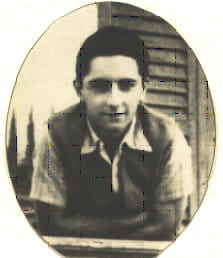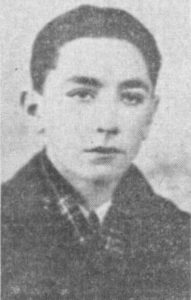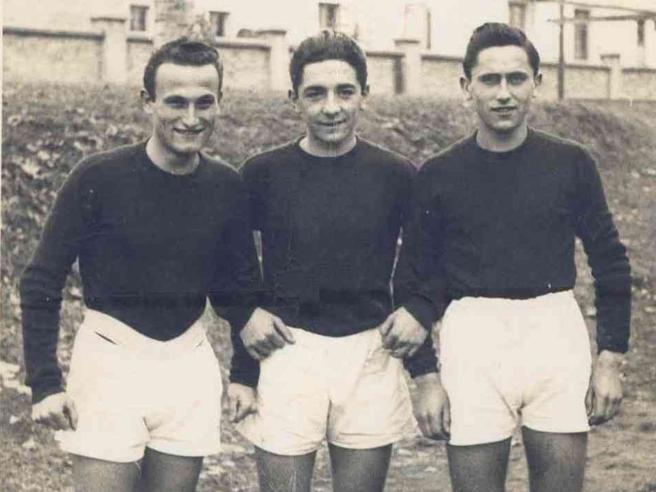Carlo Carini (1912–1992) was an Arbroath-born Italian partisan, celebrated for his brave contributions to the Italian Resistance during World War II. Born on 10 February 1912 in Arbroath, Scotland, Carini was the son of Italian immigrants. His family had settled in the United Kingdom, where his father worked as a stonemason. However, Carlo moved to Italy in the early 1930s, drawn by his family’s Italian heritage and the prospect of better opportunities in his ancestral homeland.
 Carini initially studied in Italy and became active in the social and political life of the country during the rise of Fascism under Benito Mussolini. Although Carini was initially a supporter of Mussolini’s regime, he eventually became disillusioned by its authoritarianism and the regime’s alignment with Nazi Germany. Following the fall of Mussolini in 1943 and the German occupation of northern Italy, Carini joined the Italian Resistance, where he became deeply involved in partisan activities.
Carini initially studied in Italy and became active in the social and political life of the country during the rise of Fascism under Benito Mussolini. Although Carini was initially a supporter of Mussolini’s regime, he eventually became disillusioned by its authoritarianism and the regime’s alignment with Nazi Germany. Following the fall of Mussolini in 1943 and the German occupation of northern Italy, Carini joined the Italian Resistance, where he became deeply involved in partisan activities.
As a key member of the Partisan Brigade Garibaldi, one of the main resistance groups operating in northern Italy, Carini worked as a courier, organising sabotage operations, and helping to smuggle arms and supplies. He operated in the mountains and forests of the Italian region of Piedmont, an area that saw intense partisan activity. Carini’s group was involved in disrupting German military operations, engaging in acts of sabotage against railways, and targeting Nazi officials and collaborators.
One of Carini’s most significant contributions was his involvement in the coordination of local resistance efforts in Turin during the late stages of the war. His knowledge of the geography and local terrain, along with his resourcefulness, made him a highly effective operative in the fight against the Axis forces. His courage and tactical skills helped unite various anti-fascist factions into a more cohesive resistance movement.
 Carini was arrested by the Gestapo at one point but managed to escape after a daring rescue by his comrades. After the war, he returned to post-war Italy, where he remained involved in the political and social life of the country. Despite facing personal and political challenges, he continued to be a strong advocate for anti-fascist values and the memory of the resistance.
Carini was arrested by the Gestapo at one point but managed to escape after a daring rescue by his comrades. After the war, he returned to post-war Italy, where he remained involved in the political and social life of the country. Despite facing personal and political challenges, he continued to be a strong advocate for anti-fascist values and the memory of the resistance.
Carlo Carini passed away in 1992, leaving behind a legacy of courage and dedication to the fight for freedom and justice during one of the darkest periods of European history.
Bibliography and Resources
- “The Italian Resistance: A Story of Freedom” by A. K. L. Alexander
This book provides an overview of the Italian Resistance, with specific references to important figures like Carlo Carini. It includes insights into the activities of the Partisan Brigade Garibaldi, with Carini being one of the notable participants. - “Partisans, Patriots, and Prisoners: An Oral History of Italy’s Resistance” by L. Whitehead
This collection of personal accounts and interviews offers a vivid portrayal of the Italian Resistance, including recollections from individuals like Carlo Carini and his comrades. - “Fighting the Fascists: The Italian Resistance Movement, 1943-1945” by S. Benassi
A detailed analysis of the Italian resistance during WWII, this book explores various resistance groups, including the Garibaldi Brigades, and highlights the efforts of individuals such as Carini. - “The Resistance: The Italian Partisans in World War II” by D. De Rosa
A comprehensive study of Italy’s partisan movement, including the role of the Garibaldi Brigades and figures like Carlo Carini. This text looks at the impact of partisans on the Italian war effort and the eventual defeat of Fascism.

